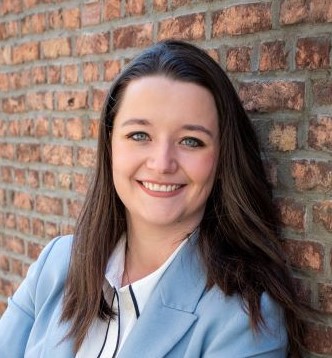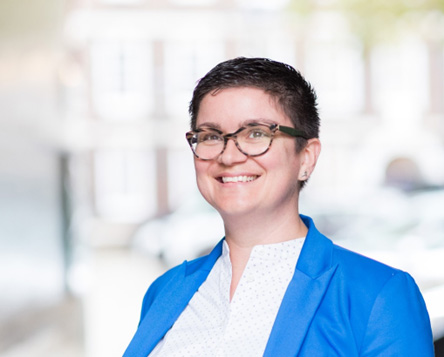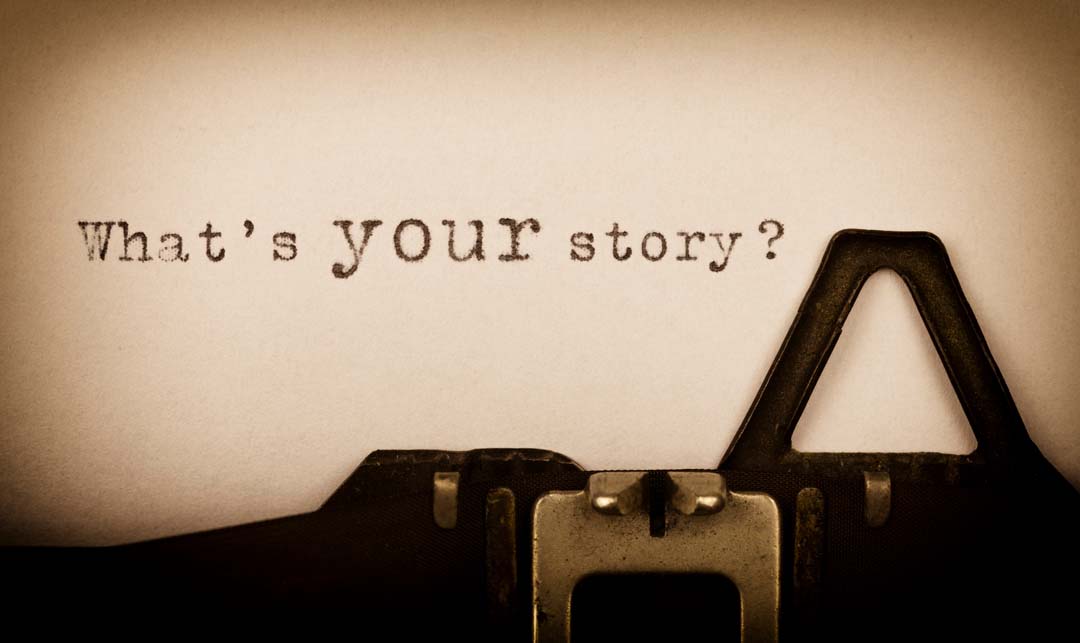Anna Svitak and Lior Locher interview each other and share how they developed their careers as learning professionals

About Anna Svitak
I’m an organisational psychologist and working as a Learning Advisor for Shell as part of its graduate scheme. I’m passionate about creating environments where people are able to thrive and perform. In my free time, I’m a local hub catalyst for the L&D Shakers in Amsterdam bringing people together face-to-face. These are my personal views as a Learning Advisor for Shell International BV and do not represent the views of Shell.
About Lior Locher
I have a portfolio career and love it: Senior Learning Consultant with NIIT where I work on learning transformation with global clients. Love being a part of the L&D industry community. I also have my own coaching and speaking business and write books in the personal development space, and am an artist and just made my first film. L&D is career #3 after working in marketing/communications and journalism (online/radio/newspaper).

Why work in L&D?
Anna
Just out of university, I didn’t know much about Learning & Development. I didn’t even know there was such a job. As luck would have it, I started an internship within L&D and found that it is the perfect fit. I’ve studied Psychology as I wanted to not only prevent people from suffering a burn-out, but rather wanted to see people motivated and thrive. We all spend a great deal of our time at work and I thought this is where we could have quite an impact on people. In my job I try to create an environment where employees receive the support to grow, are able to develop further and feel competent. I believe that we have quite a large impact on employees from the L&D function. This is why I love being in L&D.
Lior
I graduated into a financial crisis and was a struggling journalist, which was even more precarious back then. I needed to find something that would give me a bit more financial stability and better odds to eventually be able to move abroad. All my time, money and energy went to personal growth and development and learning new things and trying new ways of learning, and I was always curious about tech and design. Imagine my delight to find out that this is a proper professional field that one could actually work in!
What skills or background did you draw on to get your first learning role?
Anna
I didn’t learn much about L&D at university. Nonetheless, psychology and understanding the human mind and behaviours was a match. I mainly relied on theories around motivation, how people learn and needs theories. Additionally, being trained as a researcher can help when assessing performance needs, testing hypotheses and analysing impact.
Lior
My start into learning was not a positive experience at all, so the main skill I had to draw on was resilience. I had plenty of practice to defy the odds because of my background, I learned to follow opportunity, and to work day and night for it, to find allies and supporters and to have faith something would come of it eventually. And it did.
My previous career was in journalism and communications, and I kept getting an enormous amount of flak for “not being a real learning professional” when I started in L&D age 30. At some point, social learning became all the rage and my comms background ended up being in high demand. People started to value my skills and that I could create something truly integrated and meaningful. So I got the last laugh.
What did your employer do/could have done to make it easier for you to land and grow?
Anna
The main difficulty for me was to find a starting job in L&D that wasn’t only administration. The fact that Shell offered a L&D position as part of a graduate scheme has helped tremendously. I’ve had the chance to try out and get involved in all the different aspects of L&D such as onboarding, facilitation, designing learning experiences, leadership development and much more. As a result, I’ve had a crash course of all things L&D. I then got the chance to deepen my experience based on preferences. Additionally, I’ve got to spend a lot of time on further courses, books, and videos to support my growth. Finally, I’ve had the flexibility to attend local community events (L&D Shakers) and various webinars that are offered on all topics. Personally, I just wanted to experiment and soak up as much as I could and that was exactly what has been offered by my role in Shell.
Lior
I am fairly prolific in my own learning activities and in connecting into the industry and community and the broader conversation beyond L&D, and always have been. It often takes new employers a moment to take it seriously and to see its value, particularly for activities that aren’t very obviously L&D related or linked to a very obvious project or client. In the past, I often had to start from a position of defence and under intense scrutiny that then turned into celebration later. So let’s get to the celebration a bit quicker…
What other support was particularly helpful (line manager, mentors, community etc)?
Anna
I’ve had a very positive experience moving into L&D which was mostly made possible by several amazing people. I’ve had some amazing line managers, teaching me but also providing me with lots of autonomy. I’ve often got to choose projects that fit my skills, strengths and interests.
Lior had probably the biggest impact on me when starting out by showing me what L&D is really about; not just training! Lior taught me and connected me with more people.
Lastly, the L&D Shakers community has provided me with an additional safe space independent from the companies I’ve worked for. I’ve met so many great people and have access to so much knowledge through this community.
Lior
I had no support in my first setup and it was not a psychologically safe environment. It was incredibly lonely and stressful. So I needed to build my own support system outside of work. That led me to lots of networking and finding and building community. First through alumni networks from training I attended outside of work and some expert coaching/advisory I paid for myself, then through professional associations like ICF, DGFP, ATD and the (e)learning network where I eventually served on the board. Social media also played a huge role and the real-life community that grew from it. These professional communities are still a key and very vibrant part of my life.
What helps you grow further as a learning professional?
Anna
Communities and specific people within my network are key for me. They are inspiring me and providing me with so much new input on a daily basis. Also, the fact that you can do this job for quite some time and you will still have new challenges every day. A solution that worked in a different context, might not work anymore. It keeps you on your toes to continuously stay up to date and grow further.
Lior
I already mentioned the community, that is still key to how I keep tabs on what is going on. I go quite a bit beyond learning, into tech, entrepreneurship, coaching, agile, social change and sustainability. I also have a portfolio career and learning is just one part of it, but the other branches broaden and deepen how I am in the world and allow me to tap into completely different ‘scenes’. All of which informs my work in learning too, and I’d like to think it makes it better.
What advice would you give to your younger self?
Anna
I’m still feeling very young and looking for advice daily from others! Something I learned recently, that I wish I knew earlier, is to just get myself out there. Don’t wait for opportunities or exclude yourself from great opportunities just because you feel you’re not there yet.
Lior
This might be controversial: less formal qualifications. Most of them were too expensive for an early-career person to go into huge debt for, and that mountain of debt has hugely delayed being able to build a life for myself which was the whole reason for wanting to have a career in the first place. Instead: find surroundings that value who you are and what you can bring and who help you with your growth, including some investment. Go as far as you need to go to find a good fit (including moving countries where needed, I did that a decade too late), and then focus on making things work there.
In an alternative universe, what would you do if you didn’t work in L&D?
Anna
Still dreaming sometimes of a second career as a sleep scientist or neuroscientist; some type of scientist!
Lior
If I’d be fully able-bodied in that universe, I’d be a florist.
Anna Svitak is a Learning Advisor at Shell
Lior Locher is a Senior Learning Consultant with NIIT




